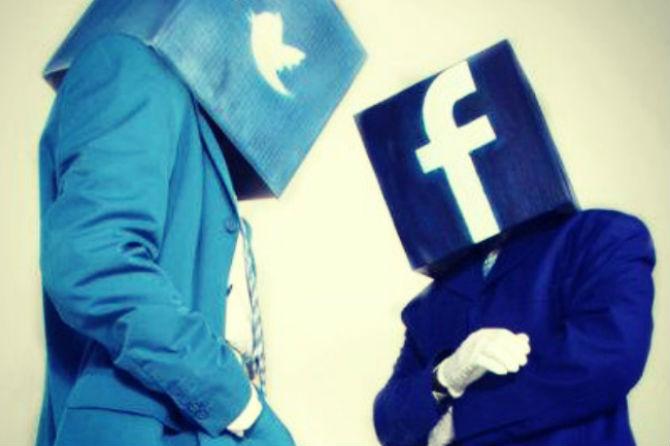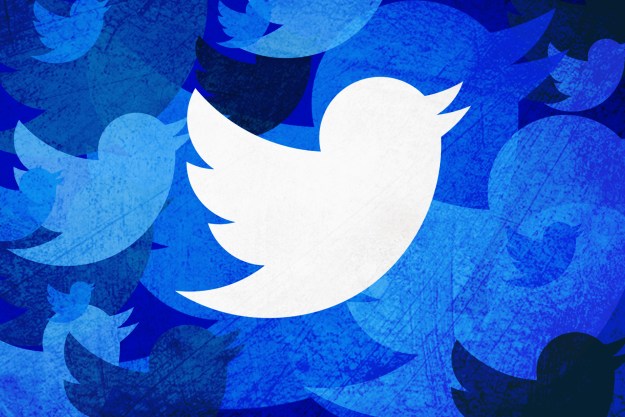
The Twitterization of Facebook continues. The steps have been incremental: Updates that encouraged users to post more frequently, and the Ticker, which brought us as-it-happens news (or the closest thing to) – both of which are reminiscent of Twitter’s non-stop, real-time stream. Then there was the more obvious move with hashtag adoption, verified accounts, and embed support.

Maybe all this explains the recent visit Jay-Z just happened to pay to Facebook HQ.
So why now? Because it’s a market Twitter has corned, and it’s a valuable one. When Twitter first launched, Facebook had already been around for a few years – but celebrities almost immediately embraced Twitter regardless. Why, when Facebook was right there waiting for them? A few reasons: Twitter was more public, and – surprise! – celebrities like attention. Twitter could serve as a more casual mouthpiece between them and their adoring fans, agent middle-men be damned.
Twitter also quickly became a mecca for endorsements. Get sent free stuff and then paid to tweet about? Oh, go on, twist my arm!
Of course the fact that you could accrue millions of followers without having to be inundated with their updates was also a plus.
For the image-conscious celebrity, Twitter has simply always been a more valuable asset.
That doesn’t mean it makes Twitter a better social network or Facebook a worse one, but the effects are fairly easy to see: Facebook is for friends, Twitter is for follows.
When you log into Facebook, what do you see? I’ll tell you what I see: Content from my (relatively) close friends and family. A link one good friend sent to another about a music festival. A picture my neighbor posted of her nephew. A photo my cousin was tagged in. Yes, there are posts here and there from people I don’t know as well, or from Pages I follow (which are mostly local organizations anyway), but generally speaking it’s all within my social circle.
And Twitter? It’s very industry-heavy, full of journalists, developers, PR types, etc. I follow friends, but they are far from what predominantly fill up my feed. Largely, I’m looking at the tweets of people I think are smart, funny, and on top of what’s happening. Which essentially makes me their fan and not their friend.
When someone I don’t know follows me, retweets me, or tweets at me on Twitter, I think nothing of it. When someone on Facebook I don’t know messages me or adds me, I rarely add them back or message them back. Facebook is my “private” (and yes, I realize the hypocrisy of that, hence the quotation marks) online social life; Twitter is my public one. Are you the same person getting drinks with the office as you are at your best friend’s bachelorette party? Exactly.
Here’s the thing though: No one cares about your friends and family. Well I mean, you do … but advertisers don’t. And neither do brands and marketers and TV networks. What they care about is bankability.
And in order for brands to look at Facebook like they do Twitter, Facebook has to court celebrities and get them engaged and using the site. And it has to get us to want to pay attention to them there – not just to our own tiny social circle. Because as great as our personal bubbles of information might be, gossip about what everyone from college is doing isn’t going to sell a TV show … now gossip from and about the people on said TV show just might do it.
Recent research, in fact, shows that high Twitter engagement correlates to positive TV ratings, and this is just one of the things Facebook is missing out on by being a more personally-centric network. The reasons for Facebook to make this push to get celebs on board, verified, and publicly posting are just overwhelmingly obvious: There’s too much damn money to be made not to do it.

And in another Twitterization, Facebook reportedly plans to bring a trending topics-like hub to the site where you can see what other users are publicly talking about and join in on the conversation – a function hashtags will undoubtedly play a part in.

Maybe Facebook can be a more compelling network for these changes; perhaps we will be able to distinctly separate our personal social circles from the public ones all within on platform. It does deserve to be mentioned that in many ways, Facebook is working to show us a very narrow view of what’s on in the world by promoting stories from the people we most interact with and stories that are getting engagement from our social circle. Perhaps these changes mean we can see content from famous or influential users and participate in hashtagged trendiness and then switch to the “Close Friends” view, where only our real life contacts get to participate.
That’s best-case scenario, of course. Old habits die hard, and many of us are extremely used to using Twitter for one purpose and Facebook for another and for us, it’s a system that works perfectly well (provided we can air the occassionally bout of user-rage). But more often than not, social networks end up grooming us to their needs instead of the other way around – so expect to see a heightened emphasis on real-time, on public content, on fly-by, hashtagged snippets in lieu of longer, more personal stories.
Facebook has always been the social network most tied to our real-life identities, a system it’s earned legitimacy for embracing. Twitter, for all its wonders, is built on a lot of lying (you can call it spamming, botting, marketing, or manipulation – whatever). Clearly, it’s a compromise Facebook is willing to make and we’re just going along for the ride.
Editors' Recommendations
- Facebook’s rebrand isn’t quite as drastic as Twitter’s
- No joke: Twitter is taking away your blue check on April 1, unless you pay
- You can bid for Twitter’s bird statue right now
- New feature shows that even Twitter wants to be like TikTok now
- How to use Twitter Circle to limit who sees your tweets


